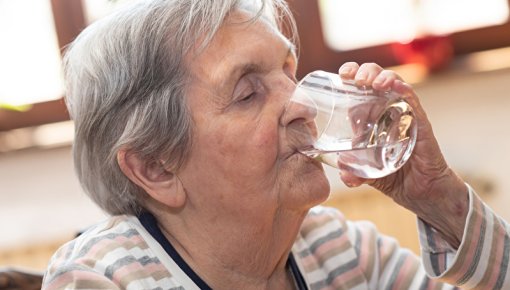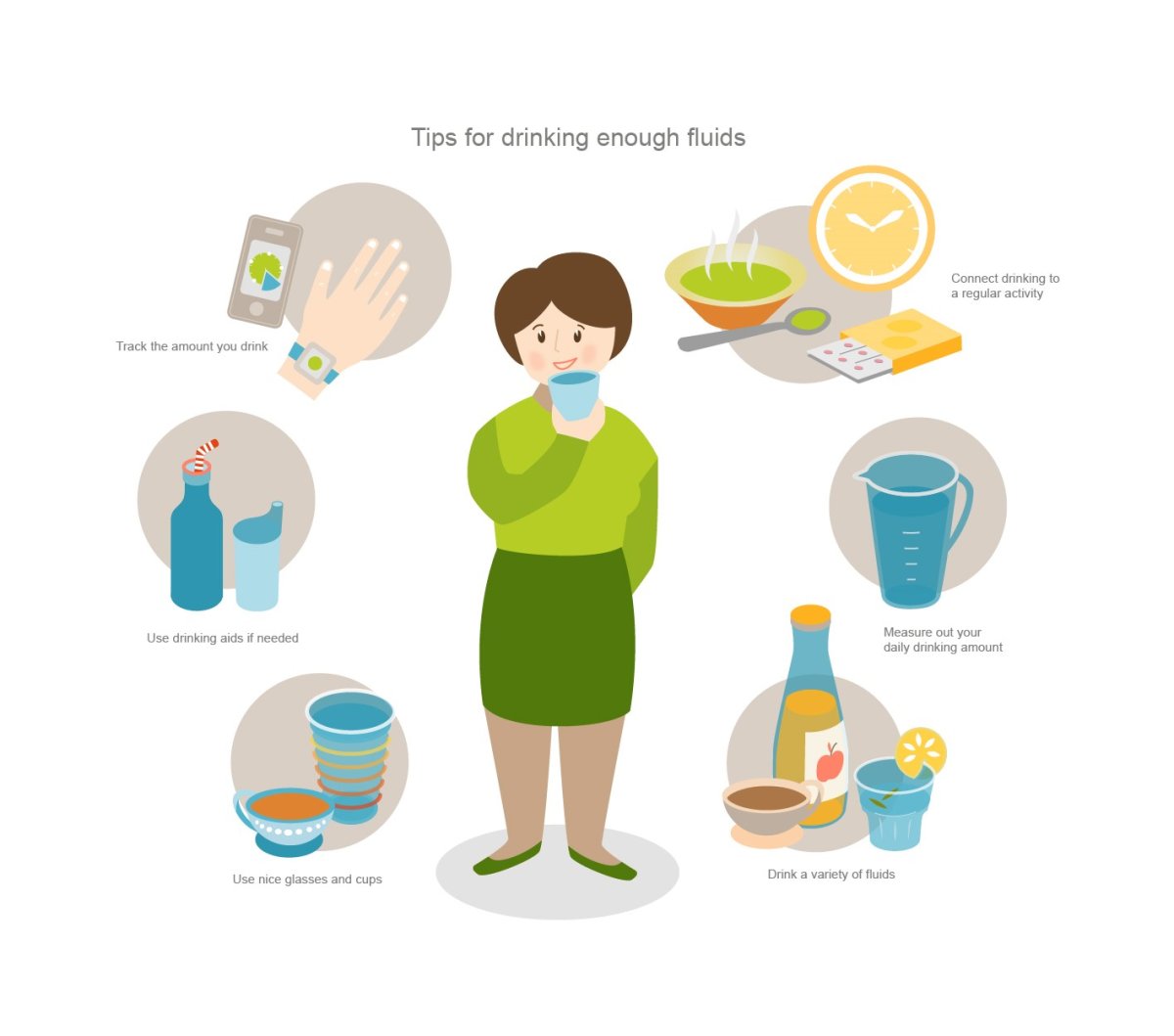Banga S, Kumar V, Suri S et al. Nutraceutical Potential of Diet Drinks: A Critical Review on Components, Health Effects, and Consumer Safety. J Am Coll Nutr 2020; 39(3): 272-286.
Bhanu C, Avgerinou C, Kharicha K et al. 'I've never drunk very much water and I still don't, and I see no reason to do so': a qualitative study of the views of community-dwelling older people and carers on hydration in later life. Age Ageing 2019; 49(1): 111-118.
Bruno C, Collier A, Holyday M et al. Interventions to Improve Hydration in Older Adults: A Systematic Review and Meta-Analysis. Nutrients 2021; 13(10).
Deutsche Gesellschaft für Ernährung (DGE), Österreichische Gesellschaft für Ernährung (ÖGE), Schweizerische Gesellschaft für Ernährungsforschung (SGE). Referenzwerte für die Nährstoffzufuhr. Bonn: DGE; 2017.
Garcia-Garcia D. Health Promotion and Hydration: A Systematic Review About Hydration Care. Florence Nightingale J Nurs 2022; 30(3): 310-321.
Hooper L, Abdelhamid A, Attreed NJ et al. Clinical symptoms, signs and tests for identification of impending and current water-loss dehydration in older people. Cochrane Database Syst Rev 2015; (4): CD009647.
Masot O, Miranda J, Santamaría AL et al. Fluid Intake Recommendation Considering the Physiological Adaptations of Adults Over 65 Years: A Critical Review. Nutrients 2020; 12(11): 3383.
Maughan RJ, Griffin J. Caffeine ingestion and fluid balance: a review. J Hum Nutr Diet 2003; 16(6): 411-420.
Maughan RJ, Watson P, Cordery PA et al. A randomized trial to assess the potential of different beverages to affect hydration status: development of a beverage hydration index. Am J Clin Nutr 2016; 103(3): 717-723.
Volkert D, Beck AM, Cederholm T et al. ESPEN practical guideline: Clinical nutrition and hydration in geriatrics. Clin Nutr 2022; 41(4): 958-989.
IQWiG health information is written with the aim of helping people understand the advantages and disadvantages of the main treatment options and health care services.
Because IQWiG is a German institute, some of the information provided here is specific to the German health care system. The suitability of any of the described options in an individual case can be determined by talking to a doctor. informedhealth.org can provide support for talks with doctors and other medical professionals, but cannot replace them. We do not offer individual consultations.
Our information is based on the results of good-quality studies. It is written by a team of health care professionals, scientists and editors, and reviewed by external experts. You can find a detailed description of how our health information is produced and updated in our methods.


